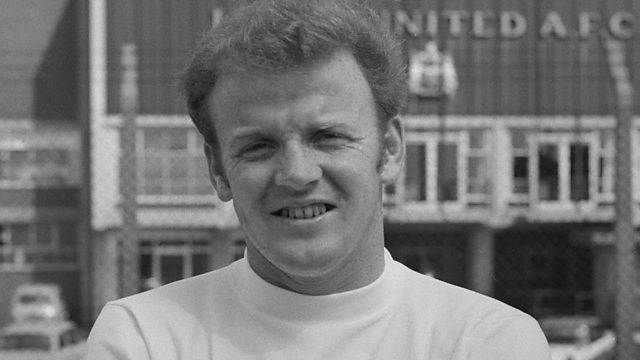Introduction
Billy Bremner, one of Leeds United’s most iconic figures, epitomized dedication and tenacity throughout his storied career. Joining Leeds United at a young age and rising through the ranks, Bremner’s influence helped shape the club’s golden era under the guidance of Don Revie. This article explores Bremner’s remarkable journey, his pivotal role in Leeds United’s successes, and his enduring legacy.
Early Days and Rise to Prominence
Promotion and Struggles: The 1950s and Early 1960s
Leeds United was promoted from the Second Division in the 1955–56 season, a time when Jack Charlton became a regular first-team player. However, following John Charles’s departure in 1957, the club faced challenges and was relegated after the 1959–60 season. The appointment of Jack Taylor as team manager in May 1959 marked a new chapter, and among his early signings was fifteen-year-old Norman Hunter. Bremner, who signed a professional contract in December 1959, made his first-team debut on January 23, 1960, in a 3–1 victory against Chelsea.
Bremner’s Breakthrough: The 1960s
Bremner’s career saw a significant breakthrough when Chris Crowe’s departure to Blackburn Rovers allowed him to establish himself as Leeds’ permanent outside-right. The 1960–61 season saw Leeds struggling in the Second Division, leading to Taylor’s resignation in March 1961. Revie’s appointment as player-manager marked the beginning of a transformative period for the club, introducing a youth development policy that would prove crucial to Leeds’ future success.
The Revie Era: Triumphs and Challenges
A New Era of Success: 1962–63 to 1964–65
Under Revie’s management, Leeds finished fifth in the 1962–63 season. Bremner, initially struggling with form, was moved to central midfield and partnered with Johnny Giles, forming a formidable midfield duo. Leeds won promotion as Second Division champions in the 1963–64 season but were controversially labeled as the “dirtiest team” by the FA News.
In the 1964–65 season, Bremner’s significant contribution was evident, although Leeds lost the title to Manchester United on goal average and were defeated by Liverpool in the FA Cup Final. Bremner’s goal in extra time was overshadowed by Ian St John’s winner.
European and Domestic Glory: 1965–66 to 1968–69
Bremner’s leadership was highlighted when he captained Leeds after Bobby Collins’s injury. Leeds finished second in the 1965–66 league campaign but achieved notable success in European competitions. They won the 1968 Football League Cup Final and the 1968 Inter-Cities Fairs Cup, securing their first European trophy. Bremner’s consistent performances were crucial in Leeds’ league title win in the 1968–69 season, the club’s first English championship.
The Peak of Success: 1969–73
Unmatched Achievements and Near Misses
The 1969–70 season began with a Charity Shield victory, but Leeds fell short of the title, finishing second. The following season, Leeds clinched the Inter-Cities Fairs Cup again and had an impressive run in the 1970 FA Cup Final, where they lost to Chelsea. Bremner was named FWA Footballer of the Year for his outstanding performances.
The 1971–72 season saw Leeds win their first FA Cup, though they narrowly missed out on the league title. Bremner’s leadership remained pivotal, and despite a challenging 1972–73 season, he continued to excel, helping Leeds reach the FA Cup Final and the European Cup Winners’ Cup Final.
The Final Years: 1973–76
Legacy and Transition
In the 1973–74 season, Bremner’s attacking prowess led to his highest goal tally in 12 years, contributing to Leeds’ second league title under Revie. However, following Revie’s departure to manage England, Leeds faced upheaval. Bremner’s application for the manager’s position was overlooked, and the team struggled under Brian Clough’s brief tenure.
Despite a challenging period, Bremner’s leadership remained strong. The club reached the European Cup Final but lost to Bayern Munich amid controversial circumstances. Bremner continued to be a crucial player until injuries and managerial changes led to a less successful 1975–76 season.
Legacy and Impact
Billy Bremner’s legacy at Leeds United is etched in the club’s history through his unwavering commitment, exceptional skill, and leadership. His influence extended beyond the pitch, shaping the club’s identity and contributing significantly to its golden era. Bremner’s impact remains a defining part of Leeds United’s storied past, celebrated by fans and remembered as a symbol of excellence and resilience.
Conclusion
Billy Bremner’s journey from a young prospect to a Leeds United legend is a testament to his extraordinary talent and dedication. His contributions helped Leeds United achieve remarkable successes and left an indelible mark on the club’s history. Bremner’s legacy continues to inspire and resonate with Leeds United fans, ensuring his place as a true icon in English football.
| Period | League | Appearances | Goals | Major Achievements |
|---|---|---|---|---|
| 1960–1976 | All Competitions | 587 | 91 | Key player in Leeds’ rise to prominence; multiple trophies and league titles |
Key Achievements by Period:
- 1960–61: Promotion to First Division
- 1963–64: Second Division Champions
- 1964–65: FA Cup Finalist
- 1968–69: First Division Champions
- 1969–70: Charity Shield Winner
- 1970–71: Inter-Cities Fairs Cup Winner
- 1971–72: FA Cup Winner
- 1973–74: First Division Champions
- 1975–76: European Cup Finalist
